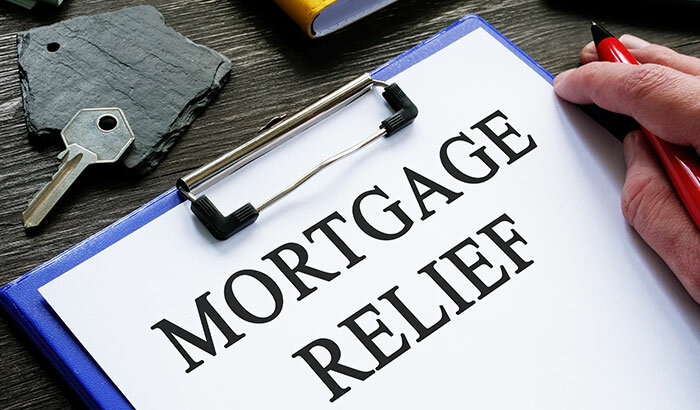When the bills become too much to handle, mortgage relief programs can help. These programs are available to those who are struggling financially or have experienced hardship that has challenged them financially.
Depending on your situation, you may be able to get one of these programs through your lender or a third-party organization. Some of them include loan modification, refinancing, forgiveness, and discharge services.
In this blog post, we’ll discuss what each program is, who qualifies for it, and more. Read on to find out more about mortgage relief programs and whether they are the right choice for you!
Table of Contents
What Is a Mortgage Relief Program?
A mortgage relief program is a program used to help lessen the impact of debt for those who are struggling to pay their mortgage. There are many different types of mortgage relief programs available, with each type offering a different type of assistance.
The different types of mortgage relief programs are:
Loan Modification
A loan modification is a change to the terms and conditions of your mortgage and is meant to help make your loan more affordable.
With a loan modification, you may be able to extend the length of the loan, get a lower interest rate, and/or get a payment plan that lets you make smaller payments.
Refinancing
A refinance lets you get a new mortgage with better rates and payment amounts. It’s a great option if your mortgage rate is high, and you can get a lower rate. You can also get cash out of the equity in your home with a refinance.
How much you can get depends on the amount left on your mortgage and the type of refinance you get. You can get a cash-out to refinance if you have at least 20% equity in your home.
Before refinancing, make sure you’re getting a good interest rate. You can check rates and apply for a mortgage online. That way, you don’t have to go to a lender’s office and wait in line. You can also get pre-approved for a mortgage, which will let you know what your loan amount will be. That way, you’ll know the maximum amount you can borrow.
Forbearance
Forbearance is a period of time when your lender stops collecting payments on your mortgage and allows you to catch up on missed payments after the program ends.
Note that forbearance will only be granted for a short period of time. You may get up to 12 months of forbearance. But, the length of time will depend on the type of hardship you’re facing and your lender’s policies.
Debt Consolidation and Forgiveness
If you’re struggling to pay off multiple debts, you can apply for a mortgage relief program that combines your debt onto your mortgage and forgives the rest. This program is often called debt consolidation.
You may be able to combine federal student loan debt, private student loan debt, and some medical bills.
Keep in mind that you may be charged a fee for combining your debt with your mortgage. The fee may depend on your total debt amount. You may also have to make a larger mortgage payment each month to cover the extra debt. But you’ll also have one less payment to make each month.
This program may be a good option if you have a high-balance mortgage and want to save money on interest.
In Conclusion
You might not be able to avoid foreclosure if you find yourself unable to pay your mortgage. However, that doesn’t mean there aren’t steps you can take to make the process easier and help you get back on your feet sooner.
You may qualify for a mortgage relief program that allows you to avoid foreclosure and continue living in your home. These programs may also reduce the amount of time it takes to get your mortgage balance paid off. The programs are also beneficial because they don’t impact your credit negatively, like a loan forgiveness program would.
Consider any of the mortgage relief programs highlighted above if you find yourself unable to pay your mortgage.

